When Susannah Griffith first sat down to write a book about forgiveness in 2022, she was in the midst of finalizing her divorce.
Urged by church leaders to forgive her spouse for years of abuse, Griffith, an independent scholar and minister with a Ph.D. from Vanderbilt University, decided to examine the subject herself.
“I came to realize that forgiveness actually looked very different from what I had been taught,” said Griffith in a recent phone call. “I felt very strongly that forgiving my spouse looks like not being married to him anymore.”
Her writing on forgiveness has come, at times, at great personal cost. In 2023, she said, she felt pressured to resign from the Mennonite seminary she worked for after publishing an article in Anabaptist World titled “When peace theology is violent,” calling the community’s urging to stay in her marriage “emotional torture.”
“The fact that it was so offensive for me to talk publicly about my experiences within the Mennonite community, to me it was all the more important for survivors that I speak up,” said Griffith. “I believe that people are dying because they are being pressured by their communities to stay in abusive relationships.”
Your tax-deductible gift helps our journalists report the truth and hold Christian leaders and organizations accountable. Give a gift of $30 or more to The Roys Report this month, and you will receive a copy of “Hurt and Healed by the Church” by Ryan George. To donate, click here.
Griffith’s completed book, “Forgiveness After Trauma: A Path to Find Healing and Empowerment,” was released Tuesday. Griffith spoke about anger, reconciliation and biblical forgiveness. This interview has been edited for length and clarity.
What myths about biblical forgiveness do you mean to debunk?
One of them is that forgiveness means we can’t seek justice, ask for accountability or be angry. Biblical forgiveness is broad enough that it allows us to be authentic about the reality we experienced. To arrive at a place of genuine forgiveness, we need to have the space to be angry and seek justice. If we spiritually bypass those things, we’re not going to be forgiving. We’re just putting a BandAid on a much deeper wound.
What does Scripture say about forgiveness by a person in power versus forgiveness by a person who is vulnerable?
The stories Jesus uses to illustrate forgiveness have to do with somebody with a lot of power extending forgiveness to somebody who doesn’t. If you’ve got a lot of money, you don’t need to squeeze the person who’s less prosperous for the little debt they owe you. Those who have a lot of power are expected to forgive those who don’t. So it’s a total misapplication to use these passages against survivors of abuse, who are controlled by somebody more powerful.
You point in the book to Jesus’ teaching about retaining sins as well as forgiving.
He tells his disciples, if you forgive the sins of any, they are forgiven, if you retain the sins of any, they are retained. The second part of that teaching normally gets forgotten. Retaining sins, continuing to hold someone responsible for their actions, is something we don’t see a lot of in Christian culture. When a leader commits a sexual indiscretion, there can be a lot of pressure to reincorporate him into the community. To make Christian culture safer for survivors, we need to think what this means for rejecting abuser participation in certain Christian spaces.
How have you come to define biblical forgiveness?
When I boil it down, biblical forgiveness means relinquishing the justified right we might have towards vengeance or retribution, recognizing that we’re held within God’s justice and mercy. We’re not responsible for achieving what would ultimately be the just outcome. We can trust in God’s justice and mercy to do whatever needs to be done to restore creation.
That doesn’t mean that we shouldn’t pursue legal action, justice or accountability, but at the end of the day, our legal systems will fail us. Our resolutions won’t provide us with the emotional closure that we feel we need. We can trust that God’s justice and mercy are there for us, and will take care of whatever needs to be done.
What advice do you have for churches responding to abuse allegations?
I don’t think talking about forgiveness is ever the first line of response. Safety is always more important than forgiveness. We can’t even have the conversation about forgiveness if we’re not safe.
Churches should realize that the actual abuse may be even more, not less, than what they’re hearing, and realize that whatever they say or do may have real implications for someone’s safety and life. When I was going through domestic violence, I often felt my safety and emotional health were less important than this abstract concept of forgiveness, which to church leaders meant staying in an abusive marriage. That had long and devastating consequences for me.
Why is it important to not ignore the anger God expresses in the Bible?
For many Christians, especially maybe progressive Christians, we’re uncomfortable with the idea of God being angry. But we’re also uncomfortable with anger in human relationships, too. This is especially true of women who have been socialized to mask anger with a smile. Forgiveness requires that we’re dealing in the reality of what has happened, and oftentimes the reality of what has happened should make us angry. Anger is part of the way that we reflect the Imago Dei. When we have anger at injustice, we’re becoming more like God.
You say the Gospel of Matthew’s 18th chapter, encouraging people to confront a brother or sister who sinned against you alone, should not be used in cases of abuse.
Jesus is addressing people who are mostly equal. In Greek, the word is adelphos, which means brothers. But abuse happens when some people are in positions of power over others. I don’t think it’s a good application of Matthew to ask people in intimate partner relationships of violence to deal with this privately, and then shame them for coming forward. It puts victims in danger.
You write that you think Christians have vastly overstated the relationship between forgiveness and reconciliation. How so?
Forgiveness and reconciliation are often conflated, but the Bible talks about reconciliation as primarily the work of God, which eschatologically heals all creation. Humans can be agents for that reconciliation, but the burden is never placed exclusively on people, and it’s never talked about exclusively in terms of an institution like marriage. I don’t have to still be in my marriage for God’s reconciliation of the world to be carried out. We need to really expand our vision of reconciliation.
You write that rebirth is at the heart of what forgiveness means for you now. What has that looked like?
I began to feel a sense of rebirth through my divorce, which was my way of forgiving my kids’ dad by releasing him from the wrong he had done. That was only possible by fundamentally changing our relationship. Rebirth looks for me like being able to choose the relationships that I’m part of, and not feeling forced to be in a marriage for fear of the consequences if I try to leave.
It looks like healing from trauma, which was only possible through putting space between myself and the relationship in which those terrible things happened. It looks like exploring what a healthy relationship looks like, as I have now remarried. Together we’re exploring co-parenting our kids alongside our kids’ dad.
 Kathryn Post is a reporter for Religion News Service based in Pittsburgh, Pennsylvania.
Kathryn Post is a reporter for Religion News Service based in Pittsburgh, Pennsylvania.




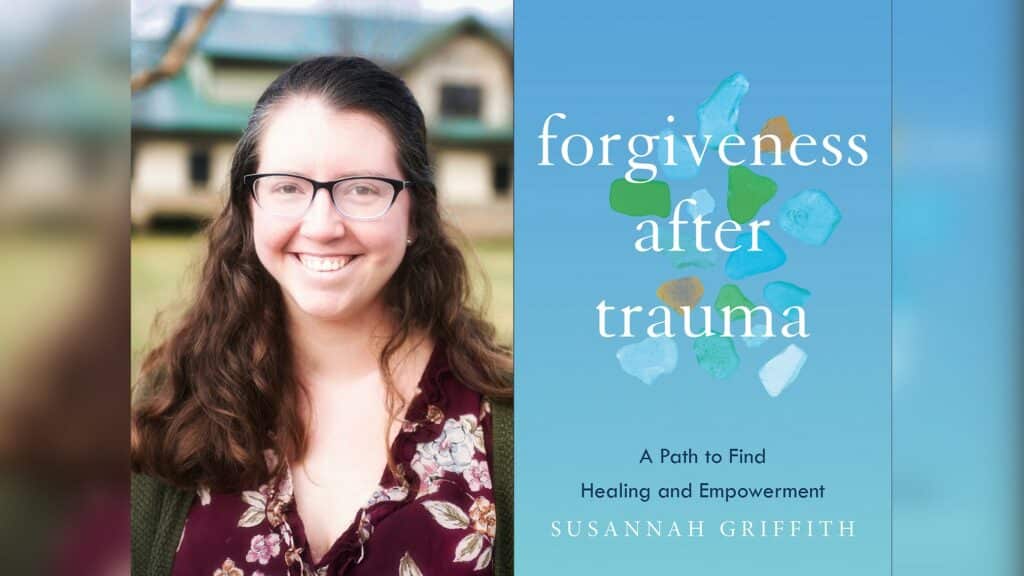
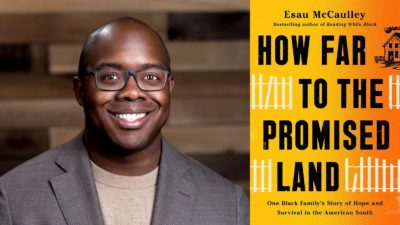
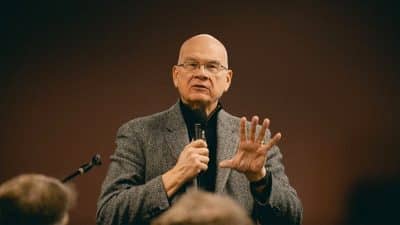


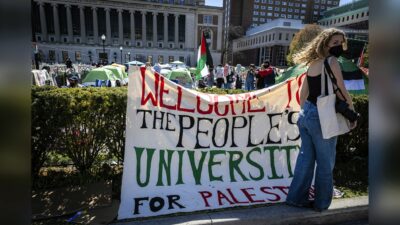


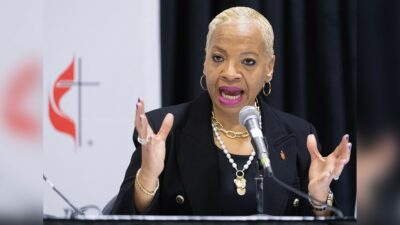







25 Responses
There is always two sides to the story. It is not fair to throw her ex husband under the bus without knowing why his ex wife decided to leave him. I see this woman has remarried but was there infidelity from her part whilst she was previously married and did this cause him trauma that led him to behave the way she claims he did?
Jack Bob, if you have experienced the betrayal of infidelity and false accusations mentioned in your post, you have my sincerest condolences. That would be more than heartbreaking. It would certainly explain why you questioned whether those reasons contributed to the breakup of Griffith’s marriage.
I would like to point out, however, that accusing an abused woman of adultery is also part of the “DARVO” technique used to silence women (and men, too, no doubt) who leave abusive spouses. The Roys Report has detailed how this happened with Naghmeh Pahani. There are several articles on this website as well as articles in major US publications documenting the false accusations Franklin Graham made against Naghmeh. https://julieroys.com/panahi-graham-bullied-salvage-savesaeed/
But has Naghmeh Panahi remarried? Correct me if I have missed any news where she says she has remarried. I thought Susannah with all her expertise in theology would have remained single after her divorce and not be guilty of committing adultery by remarrying. Doesn’t Susannah believe the NT allows for divorce (infidelity, abandonment, abuse etc.) but does not permit remarriage after a divorce? You assume the silence from Susannah’s ex husband makes his guilty of all the abuse that Susannah claims he has committed, don’t you? You have a good day.
Are you saying that the New Testament forbids divorced people from remarrying?
I concur with Professor Gordon Wenham who explains in the book on different views on divorce that the NT permits divorce but does not permit remarriage. You see in this day and age the church is indistinguishable from the world and has thus allowed for teachers who are ok with remarrying divorced Christians.
“Doesn’t Susannah believe the NT allows for divorce (infidelity, abandonment, abuse etc.) but does not permit remarriage after a divorce?”
Apparently not?? She likely has the theological expertise to be aware that many thoughtful interpretations of scripture do not bar divorcees from remarrying. The passages read that way were probably addressing something else in their original context (eg: https://margmowczko.com/jesus-divorce/, https://margmowczko.com/malachi-216-priest-manasseh-divorce/)
And if Nagmeh Panahi or any other woman gets away from an abuser and then decides to marry a decent person, she doesn’t have to explain herself to the internet at large. She doesn’t have to line her life up with someone else’s theology for her decisions to be valid.
I suggest you enlighten yourself by reading John Piper’s article on why phd’s in theology seem to commit adultery more often than ordinary Christians.Piper notes that having an advanced degree in theology does not guarantee that one is walking in sanctification Theologian Karl Barth had a phd and wrote numerous books. However, Barth was living in sin with his mistress.
Using piper as the example here is quite humorous. Also this: https://mereorthodoxy.com/what-do-we-do-with-karl-barth
Ready to cancel Luther, too? Calvin? David? Moses? Along with Barth?
Jack, why in the world are you assuming she had an affair?
This has me wondering if Jack bob is really Susannah‘s ex in disguise.
Much wisdom expressed in a succinct article. Thanks.
Wait a second. The amount owed in the parable in Matthew 18 by the unmerciful servant to the landowner speaks to the significance of our sin, not the power of that man. The scheme that seems to be being set up here is that if you can argue you have less power than another person, you don’t need to forgive. That doesn’t square with the New Testament testimony, where repeatedly people who are so poor they eat barley bread are told to forgive.
I am amenable to more cases being “divorceable” than just adultery and abandonment, to include a clear pattern of serious unrepentant sin. I also think anger and the pursuit of justice have a very important place in Christian theology; you should not be able to read about Jesus clearing the Temple without realizing our Lord was very angry, but not sinning.
I just get very nervous when I hear the word “abuse” being used as a very general classification for “things I don’t like”, and then it seems to be used as something of a “get out of jail free” card to avoid usual limitations on divorce. One divorce I’m familiar with involved “abuse” meaning “he’d get angry when cut off in traffic”, for example. I’d rather see things phrased in terms of real, Biblical categories of sin–and yes, verbal cruelty would count in the same way as does physical cruelty in light of Colossians 3:19 and 1 Peter 3:7.
Hi Robert Perry. 🙂 I agree that the word “abuse” needs to be robustly defined. You can read my definition at the FAQ page of my blog cryingoutforjustice.blog/faq
When the word “abuse” is not robustly defined, the conversation quickly goes pear shaped. And many people take advantage of that for their own fleshly motives.
The author has given more detail about her experience elsewhere. In an interview with Sheila Gregoire, she explained that her husband was repeatedly physically violent towards her and made suicidal gestures on several occasions. Over years. While she was pregnant with their children. Is that “real” enough sin?
Come on. Why assume a trained minister would write a book about forgiveness, and a reputable Christian publisher would print it, if her definition of “abuse” was “things I don’t like?”
I heard this interview as well. He’s not only physically abused her, but abused her while she was pregnant. I think even causing her water to break with one pregnancy. Men that abuse pregnant women are very dangerous.
I’ve always been well served to be a little bit suspicious of what I read online, no matter how eminent the source. See “appeal to authority” fallacy. In this case, yes, it’s serious sin, and then the additional question would be “what was the response of the husband when confronted?”.
There is a great place for separation to protect victimized parties, and there are certainly sad cases where there is sin unaccompanied by repentance that warrants divorce under the logic “the offending party has already left, might as well make it official.” I just have also seen cases where “abuse” is defined so loosely that the proverbial “burning the toast” amounts to license for divorce.
We need to tread carefully here, because the pain of going through divorce and family court leaves a mark, too.
In abuse, it’s not normally two sides to the story. It’s abuse from an abuser, and the other spouse left going…what do I do?
Hi Peggy, I put it like this:
There are always two sides to the story; but in domestic abuse, the abuser’s story is a web of lies and strategically selected half-truths, whereas the victims story is wholly true.
I think when we assume that there are not two sides to the story, we run afoul of the Biblical principles of cross examination and hearing both parties out expressed in Deuteronomy 19:15-20 and Proverbs 18:17, among other places. Sometimes one party is almost exclusively, or exclusively at fault; at other times, one party has the other cornered.
Also complicating things is that many times, the party that “wants out” does not want to really go after the other party. They just want out. Some other times, the accuser uses the process to torment the accused. I’ve seen examples of both.
Like relationships in general, it’s often a lot more complicated than some advocates would have you believe.
My question to her is, how did you heal and how did you not marry an abuser the 2nd time?
Wow…That is a lot of assumption Jack…assuming/wondering if she had an affair that led to her husbands negative behaviors. What does this sentence mean to you: “Urged by church leaders to forgive her spouse for YEARS of abuse…” ?????
It is wrong for churches to tell victims of domestic abuse that they should carry out Matthew 18:15 with the abuser. It is wrong because (a) the victim has already been doing that to the abuser for probably months or years before reporting the abuse to church leaders, and (b) because whatever the victim says to the abuser, the abuser will shape into bullets to fire back at the victim (DARVO), so it is unsafe for the victim to confront the abuser.
The passage which ought to be the primary scriptural resource in cases of domestic abuse is 1 Cor 5:11-13. It lists six heinous sins for which a person who professes to be a Christian should be expelled from the church. One of those sins is (depending on the translation) reviling, verbal abuse, slander, railing. “To rail” is an archaic word that means to use reviling, harsh or insolent language. All domestic abusers are guilty of repeatedly practicing one or more of the sins listed in 1 Cor 5:11.
“forgiveness after trauma” is Griffith’s story to tell. We should respect that. When I was going through divorce (that I initiated), my conservative pastor supported me all the way. He said there are many ways to be unfaithful to one’s vows, not just adultery. And there are many ways to commit adultery, not just sexually. While it may appear that the “leaving” partner is claiming innocence, my own experience and that of most of the divorced people I have known, there is a period of counselling, grieving, learning, and repenting. A good, Godly counsellor with require you to assess your life, your sin, your faults because if not, you enter a new relationship broken. It’s not your new partner’s job to fix you. It’s not the Church’s job to go around painting scarlet A and D on divorce people’s foreheads.
I really appreciate you sharing Barbara, especially your words about DARVO. And when someone talks about the king and the unforgiving servant, that misses the point about a level of equality between those called to meet 1:1. Even more, the king in the story has more power, but he is also the one who is mercifcul, NOT the unforgiving servant. So even when there is an imbalance of power, the key is the attitude and spirit involved. Someone who is abusive to his wife for years, is more like the unforgiving servant. As a Marriage and Family Therapist, I have seen situations where the husband was clearly abusive, and I have seen situations where the wife was clearly abusive, physically and mentally and verbally. We are to forgive from our hearts (which is the last verse in Matt. 18), which for me, means that God wants to release any pain, anger, fear etc. in the abusive victims heart, and replace it with His peace. And that peace includes healthy boundaries, separation and divorce. Forgiveness does not make accountability and the safety of the abuse victim null and void. Instead, it actually provides accountability and safety.